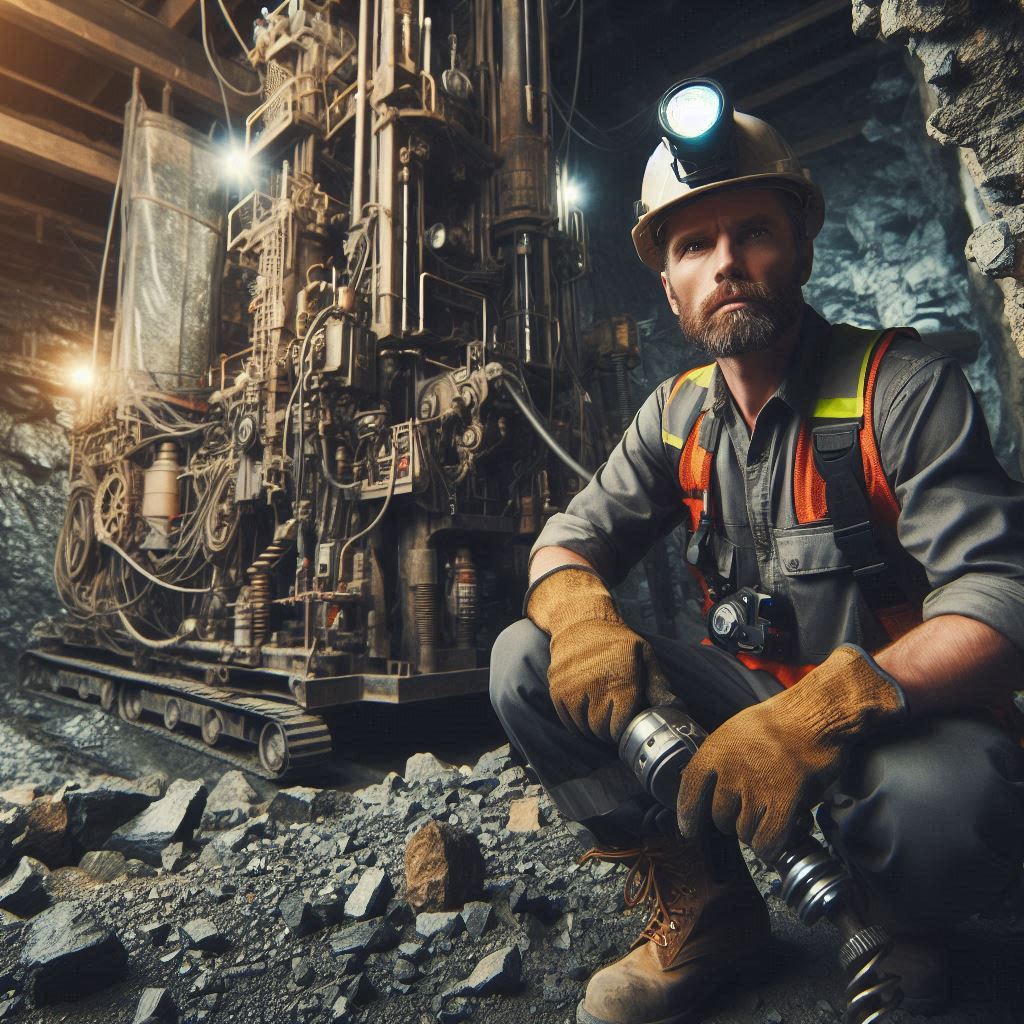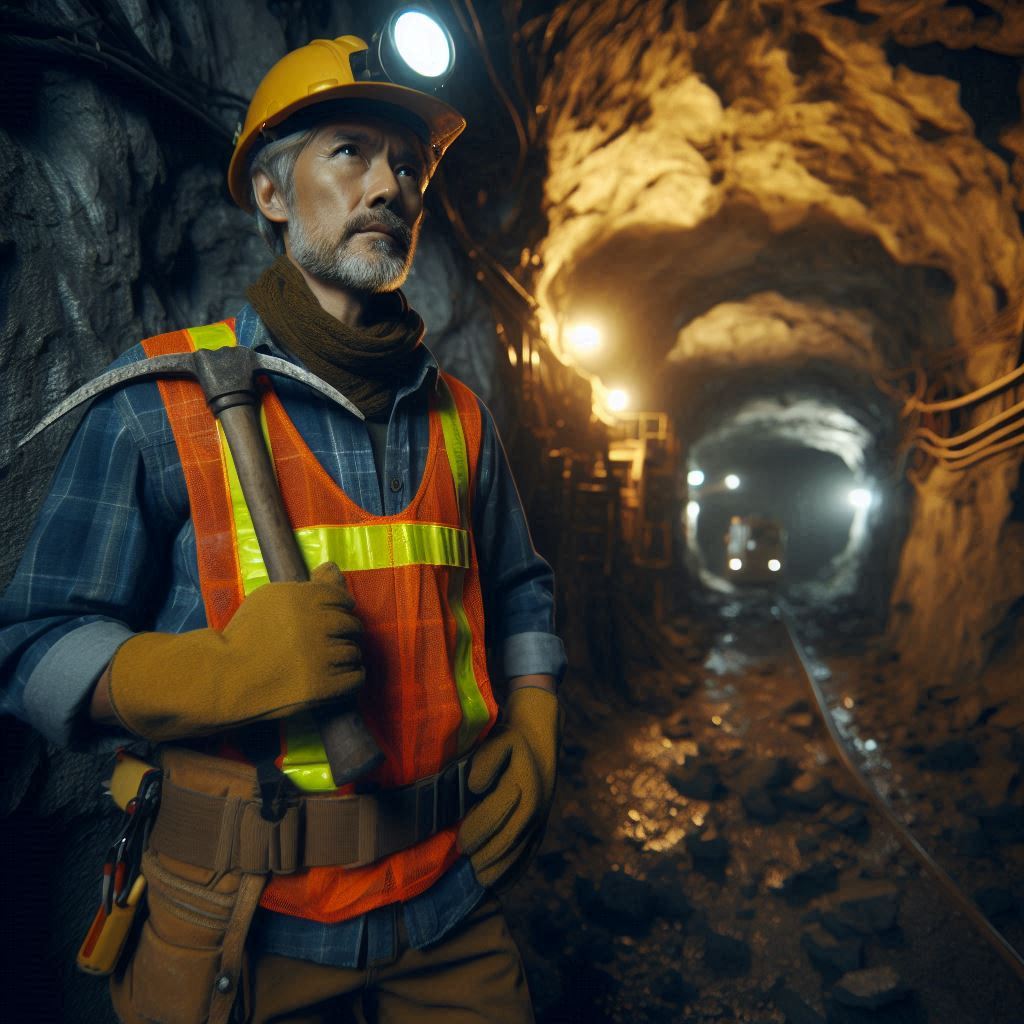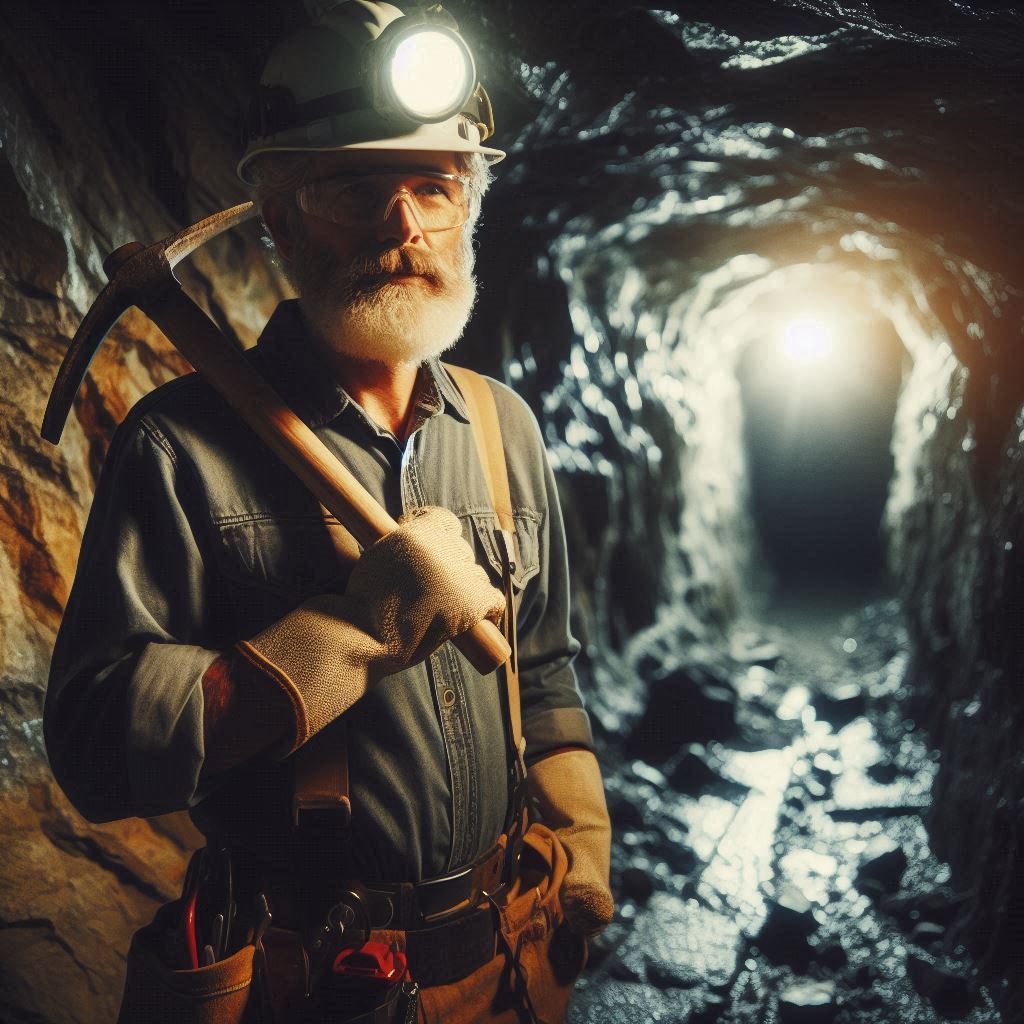Introduction
Preparing for mining engineering job interviews is essential for securing a position in this competitive field.
The mining industry demands highly skilled professionals due to the technical nature of the work.
Proper preparation sets you apart from other candidates vying for the same roles.
Job interviews in mining engineering assess both your technical expertise and your problem-solving abilities.
Employers seek candidates who can demonstrate a thorough understanding of mining processes and safety protocols.
They also value individuals who can work effectively in challenging environments.
The industry is highly competitive, with many qualified candidates applying for a limited number of positions.
This competitiveness makes it crucial to stand out by showcasing your skills and knowledge.
Being well-prepared gives you the confidence to articulate your experiences and achievements clearly.
Researching the company and understanding its operations can provide you with a significant advantage.
Employers appreciate candidates who show genuine interest in their organization.
Knowing the company‘s projects, values, and goals can help you tailor your responses to align with their expectations.
Practicing common interview questions and refining your answers is vital.
Mock interviews with friends, family, or career counselors can help improve your performance.
Feedback from these sessions can highlight areas for improvement and boost your confidence.
Basically, proper preparation for mining engineering job interviews is crucial for success in this competitive industry.
By understanding the industry’s demands and showcasing your expertise, you increase your chances of securing a desirable position.
Prepare diligently and approach your interview with confidence to stand out as the ideal candidate.
Research the Company
The Importance of Researching the Company You Are Interviewing With
Researching the company you are interviewing with is crucial.
It demonstrates your interest and preparedness for the role.
Understanding the company’s values, goals, and recent achievements helps you tailor your responses.
You can highlight how your skills and experiences align with their needs.
Knowing the company’s background allows you to ask insightful questions during the interview.
It shows you have taken the time to learn about them.
This effort can set you apart from other candidates and make a positive impression.
Additionally, being informed about the company culture helps you determine if it‘s a good fit for you.
Tips on Where to Find Information About the Company, Such as Their Website, Social Media, and News Articles
Start your research by visiting the company‘s website.
Review their “About Us” section to understand their mission and vision.
Explore their products, services, and any recent news or updates.
This information provides a comprehensive view of what the company stands for and where it‘s headed.
Social media platforms are valuable resources for company research.
Follow the company on LinkedIn, Twitter, and Facebook.
Social media often highlights the company‘s latest projects, achievements, and events.
Engaging with their posts can also give you a sense of their community involvement and company culture.
News articles and press releases offer insights into the company‘s recent activities and future plans.
Use search engines to find the latest news about the company.
Reading these articles helps you stay informed about their market position and any industry challenges they might face.
Read: Biomedical Engineering: Regulatory Affairs
Understand the Job Description
The Importance of Knowing the Job Requirements and Responsibilities
Understanding the job requirements and responsibilities is crucial for interview preparation.
Study the job description thoroughly before the interview.
Identify the key skills and qualifications the employer seeks.
Knowing the specific responsibilities helps you tailor your responses and demonstrate your suitability for the role.
This understanding also allows you to anticipate questions and prepare relevant examples from your experience.
Guidance on How to Match Your Skills and Experiences with the Job Description
To improve based on feedback, identify common themes or recurring points.
If multiple people mention the same area needing improvement, prioritize it.
Practice addressing these points in subsequent mock interviews.
For example, if feedback highlights a lack of confidence, work on speaking more assertively and maintaining eye contact.
Career counselors can offer professional insights and tailored advice.
Schedule a session with a career counselor for a more formal mock interview experience.
They can provide industry-specific questions and detailed feedback.
Use their expertise to refine your responses and strategy.
Read: Graduate Studies in Biomedical Engineering
Prepare for Technical Questions
The Types of Technical Questions Commonly Asked in Mining Engineering Job Interviews
Mining engineering job interviews often include technical questions to assess your knowledge and problem-solving skills.
Expect questions on topics like mine design, extraction methods, and safety protocols.
Interviewers may ask you to explain specific mining processes or solve hypothetical scenarios.
Suggestions on How to Brush Up on Technical Knowledge and Practice Solving Problems
To brush up on technical knowledge, review key concepts from your coursework and recent industry developments.
Practice solving problems by working through case studies and technical exercises.
Online resources and textbooks can also help you stay updated on the latest advancements in mining engineering.
Practice Behavioral Questions
Significance of Preparing for Behavioral Questions That Assess Your Soft Skills
Behavioral questions are crucial as they assess your soft skills.
Employers want to know how you handle real-world situations.
Prepare for these questions to showcase your problem-solving, teamwork, and communication abilities.
These skills are essential in mining engineering, where collaboration and quick thinking are often required.
Examples of Common Behavioral Questions and How to Structure Your Answers
Common behavioral questions include: “Describe a challenging project you worked on” or “How do you handle conflict in a team?” Structure your answers using the STAR method (Situation, Task, Action, Result).
This approach ensures your responses are clear and detailed.
For example, describe the situation, explain the task, detail your actions, and conclude with the results achieved.
Read: Networking Tips for Biomedical Engineers

Develop Your Professional Story
Guide Readers on How to Craft a Compelling Professional Story
Crafting a compelling professional story showcases your experiences and achievements effectively.
Start by identifying key moments in your career that highlight your skills and accomplishments.
Structure your story with a clear beginning, middle, and end.
Focus on challenges you faced, actions you took, and the results you achieved.
This narrative style makes your experiences relatable and memorable.
Tips on How to Tailor Your Story to Fit the Job Requirements
Tailor your professional story to fit the job requirements by researching the role and company.
Highlight experiences and skills that align with the job description.
Customize your story to emphasize how your background makes you an ideal candidate.
This tailored approach demonstrates your suitability for the position and shows that you’ve done your homework.
Read: Biomedical Engineer: Working in Healthcare Tech
Dress Appropriately and Make a Good Impression
The Importance of Dressing Professionally for the Interview
Dressing professionally for your interview is crucial.
It demonstrates respect and seriousness about the opportunity.
Choose attire that is appropriate for the company’s culture.
A polished appearance can leave a positive impression on your potential employer.
How to Make a Good First Impression Through Body Language and Communication Skills
Making a good first impression is vital.
Maintain good posture, make eye contact, and offer a firm handshake.
Clear and confident communication is key.
Speak clearly, listen actively, and respond thoughtfully.
Positive body language and effective communication can set the tone for a successful interview.
Prepare Questions to Ask the Interviewer
Sure, here’s the revised section with the specified titles included:
Importance of Preparing Thoughtful Questions to Ask the Interviewer
Preparing thoughtful questions for your mining engineering job interview is crucial.
It demonstrates your interest in the company and the role.
Asking insightful questions shows you have researched the company and are serious about joining their team.
Offer Examples of Questions Related to the Company Culture, Team Dynamics, and Future Projects
Start by asking about the company culture.
For example, “Can you describe the company’s approach to teamwork and collaboration?” Inquire about team dynamics by asking, “How does the team handle challenges in high-pressure situations?” Understanding future projects is essential for aligning your career goals.
You might ask, “What upcoming projects is the company most excited about?” or “How does the company plan for technological advancements in mining?” These questions help you evaluate if the company is the right fit for you.
Additionally, asking these questions can set you apart as a proactive and engaged candidate, making a positive impression on the interviewer.
Transform Your Career Today
Unlock a personalized career strategy that drives real results. Get tailored advice and a roadmap designed just for you.
Start NowPractice Mock Interviews
Practice Mock Interviews with Friends, Family, or Career Counselors
Practicing mock interviews with friends, family, or career counselors can significantly boost your confidence and performance.
Mock interviews simulate the actual interview experience, helping you refine your responses and improve your demeanor.
Start by asking a friend or family member to act as the interviewer.
Provide them with a list of common mining engineering interview questions.
This practice will help you become comfortable with the types of questions you might face.
During the mock interview, focus on clear and concise answers.
Highlight your skills, experiences, and how they relate to the job you’re applying for.
After the mock interview, seek feedback on your performance.
Ask for specific examples of where you excelled and areas needing improvement.
Provide Tips on How to Receive Feedback and Improve Your Interviewing Skills
Receiving feedback is crucial for honing your interviewing skills.
Be open to constructive criticism and use it as a learning opportunity.
Encourage your mock interviewer to provide honest and detailed feedback.
Pay attention to their observations about your body language, tone of voice, and overall presentation.
To improve based on feedback, identify common themes or recurring points.
If multiple people mention the same area needing improvement, prioritize it.
Practice addressing these points in subsequent mock interviews.
For example, if feedback highlights a lack of confidence, work on speaking more assertively and maintaining eye contact.
Explore Further: How Biomedical Engineers Improve Patient Care
Conclusion
Preparing for a mining engineering job interview requires dedication and thoroughness.
We covered several essential strategies to help you succeed.
First, research the company thoroughly.
Understand their values, projects, and recent news to demonstrate your genuine interest.
Second, review key concepts and technologies in mining engineering.
Brush up on technical knowledge and industry-specific skills.
Third, practice common interview questions.
Rehearse your answers to both technical and behavioral questions to ensure confidence during the interview.
Fourth, prepare questions to ask the interviewer.
Show your enthusiasm for the role and your interest in the company’s future.
Fifth, dress appropriately for the interview.
Choose professional attire that aligns with the company’s culture and industry standards.
Sixth, bring copies of your resume and any other relevant documents.
Being prepared shows your organizational skills and professionalism.
Seventh, practice good body language.
Maintain eye contact, offer a firm handshake, and sit up straight to convey confidence.
Eighth, follow up after the interview.
Send a thank-you email to express your appreciation and reiterate your interest in the position.
By taking these steps, you can increase your chances of securing a mining engineering job.
Preparation and practice are key to showcasing your skills and qualifications effectively.
Remember, every interview is an opportunity to learn and improve.
Stay proactive in your preparation, and don’t get discouraged by setbacks.
Each experience brings you closer to your goal.
Take charge of your career path with confidence and determination.
Good luck with your mining engineering job interviews!




